Pregnancy: 0-3 Months
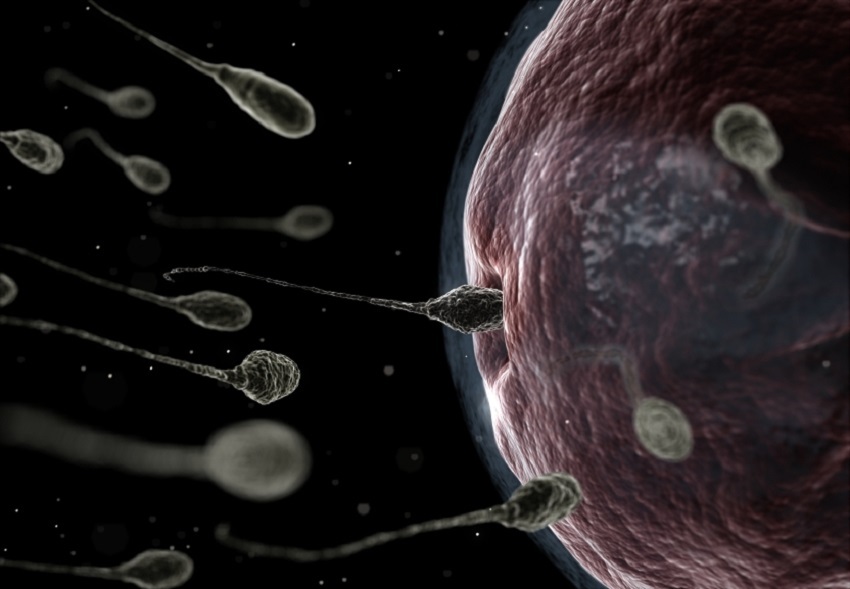
3 Weeks
The ova has been fertilised by your partner's sperm and has implanted itself in your uterus. Sometimes there is a slight amount of bleeding when the egg is becoming implanted. This is perfectly normal.
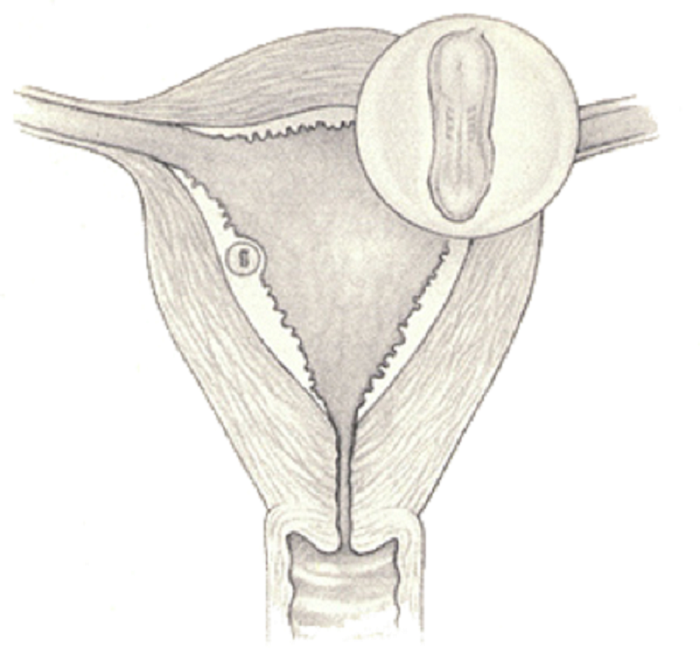
4 Weeks
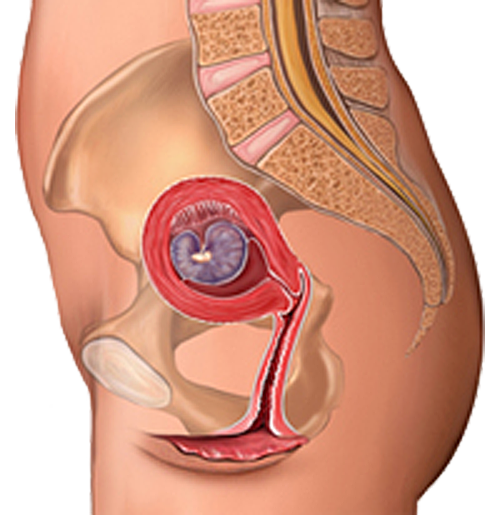
Most people are not aware that they are pregnant until about four to six weeks after conception. The hormone levels start increasing in your body as soon the ovum (egg) attaches to the inside of your uterus. This helps the uterus maintain the pregnancy. The walls of your uterus become spongy and thicker, creating the perfect environment for the growing fetus.
Some of the early signs and symptoms you might detect are:
- Missed menstrual period
- Nausea
- Frequent urination
- Tender or sore breasts
You are probably beginning to feel tired, and you may urinate more frequently, experience mood swings, and possibly have tender or swollen breasts. If you have not been avoiding environmental hazards, begin doing so now. The first trimester is the most critical time for formation of your baby. This also includes avoiding alcohol, smoke, street drugs, and limiting or avoiding caffeine. Taking a folic acid supplement is very important for your baby's development.
5 Weeks
You may be extremely tired or sleepy. Don't push yourself! It's best to take your body's cues that you need more rest during the first trimester (first three months) of your pregnancy.

Make a few adjustments to your lifestyle by trying some of the suggestions below:
- Plan a nap during your day
- Go to bed earlier than you usually do
- Allow yourself to sleep late on weekends
- Eat a balanced diet
- Take your prenatal vitamins
- Cut out any unnecessary activities
- Ask a family member or other person to help you with any tasks that seem especially exhausting right now
- Relax your housekeeping standards until you have more energy
Some women may also get headaches from the rise in hormones. There are also a lot of women who will have none of these symptoms. They will sail through early pregnancy without vomiting or being light headed. For a lot of women this can be normal as well. Do not panic if you do not have pregnancy symptoms, although you should contact your doctor if you suddenly lose your pregnancy symptoms.
6 Weeks
A urine pregnancy test (home pregnancy test) would probably be positive by now. It measures the amounts of the pregnancy hormone, HcG, in your urine. You may have morning sickness. During the first three or four months of pregnancy, you may experience nausea and vomiting. This is called morning sickness, although it can happen at any time of the day or night. Certain foods and smells might set it off without a moment's notice.
You may be feeling miserably sick, but don't worry! Morning sickness is perfectly normal. It is your body's way of adjusting to the hormones released during pregnancy. Your doctor can suggest some ways to minimize your symptoms. One of the best is to eat small, frequent meals, including one right before bed, one during the night if you get up to use the bathroom, and one about 30 minutes before you get out of bed in the morning.
Your breasts may tingle, feel heavy, the areola (dark nipple portion) may become darker.
Avoid changing cat litter, because there is a risk of getting an illness (flu-like symptoms) called toxoplasmosis, which can cause genetic defects in your baby.
7 Weeks
If your face breaks out now, it is probably due to the hormones of your pregnancy. Consult your doctor before taking any acne medication or applying any acne creams. One medication can cause serious birth defects.
You may have food cravings. Although many pregnant women never experience food cravings, you might be having these cravings as early as the first month. It's okay to give in to them once in a while, but watch that diet.
You should be consuming a healthful mix of food groups to maintain a balanced diet for your health and the normal development of your child. If you are craving non-food substances (starch, clay, ice, plaster, paint, hair or gravel), contact your healthcare worker immediately. You could have a condition called "pica," which signals that your body has a mineral deficiency. Your doctor can prescribe supplements to combat this problem.

8 Weeks
You have probably scheduled the first office visit by now. Some practitioners do not want to see you for your first visit until after you've missed two periods. This will decrease the number of doctor's visits for false pregnancies. There is also a possibility of an early miscarriage.
- On your first visit the following will happen
- Urine Sampled (protein, HcG, etc.)
- Blood Pressure (baseline) Weight (baseline)
- Pelvic Exam (size of uterus, cysts, coloring of cervix)
- Pap Smear (some practitioners do this now, others wait)
- Blood (Rh factor, iron levels, immunities, specifically Rubella)
- Family History (complications that may be predictable)
The first visit is often the longest one in your prenatal exams. This is a good time to ask any questions that you may have.
9 Weeks
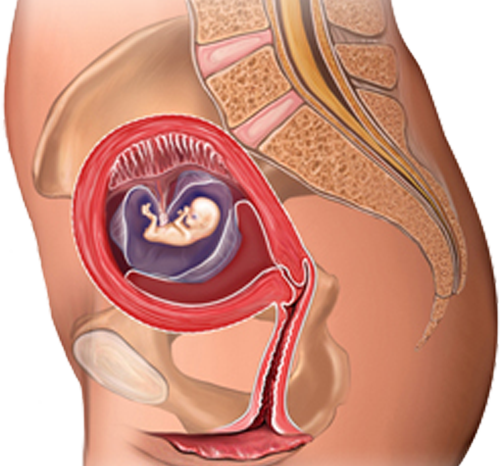
You may find yourself with a stuffy nose. Nasal congestion and nosebleeds are fairly common during pregnancy. Try using a vaporizer or humidifier to help lessen the symptoms. You will continue to feel tired, nauseated and possibly dizzy.
You may be experiencing mood swings. If you find yourself laughing or crying for no apparent reason, or overreacting to a simple situation, don't be alarmed. It's your hormones talking. Due to the change in the quantity of hormones in your body brought about by your pregnancy, you may be feeling a lot more emotional than you normally do. If you are experiencing an unplanned pregnancy, some of your emotions may be brought on by your life situation.
Don't hesitate to get the help you feel you need right now, especially if you are feeling extremely depressed or suicidal. Contact your doctor or a counselor right away.
10 Weeks
You are still tired and probably nauseated. Your abdomen may begin to pooch out, but it will be more from bowel distension than from an enlarged uterus. Your waistline is slowly disappearing.
You may be urinating more frequently. Your uterus hasn't gotten big enough to press on your bladder yet, but you may find yourself going to the bathroom much more often.
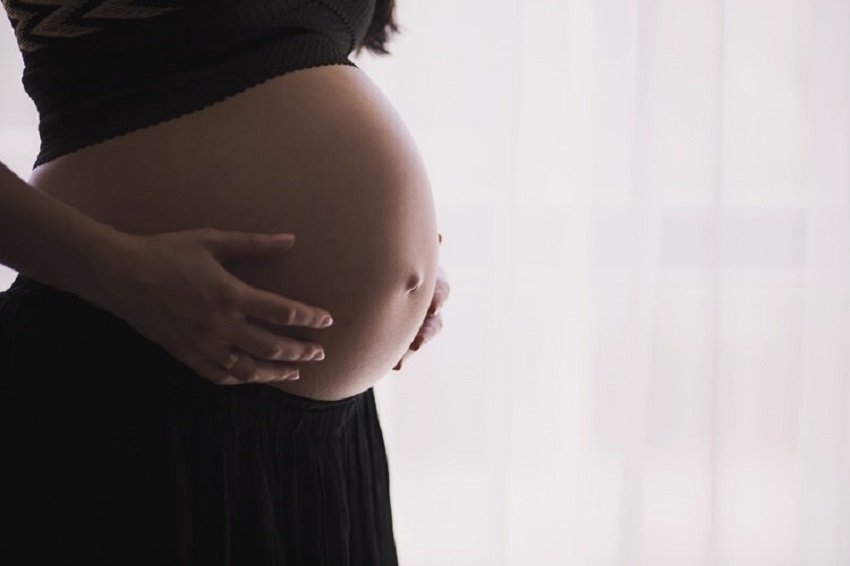
This is just another symptom of the increased hormones in your body and can be one of the first symptoms you notice. Frequent urination will last through your whole pregnancy, with a marked increase during your last month or two when the baby will probably be pressing on your bladder most of the time. If you should have any burning or pain during urination, contact your doctor immediately. You could have a bladder infection and will need to take a prescription medication to clear it up.
11 Weeks
Weight gain is a concern of a lot of women during pregnancy. By this stage of pregnancy most women have gained very little weight. Most women will gain about 1-2 lbs a month in the first trimester. Some women will actually lose weight and be perfectly fine, particularly if they were sick during the first few months. Some women will gain no weight at all, while others will gain 10 or more pounds in the first trimester.
However, your focus should be on nutrition rather than weight. You're not really eating for two, but be sure to make everything you eat count. You will only need about 300-500 calories extra a day while you are pregnant. Eat a variety of fruits and vegetables and protein. Stay away from junk foods or foods with no nutritional value.
12 Weeks
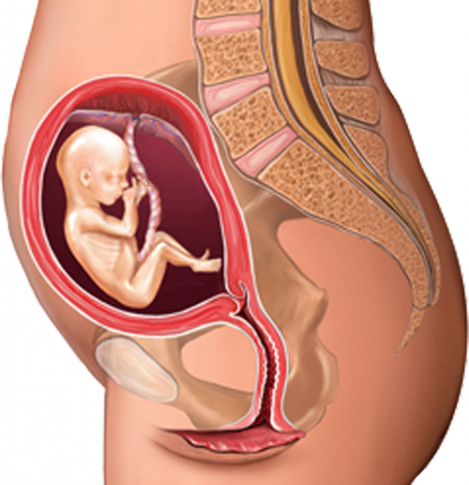
You may have headaches. If you had frequent headaches before you were pregnant, you will probably have headaches during your pregnancy. Check with your doctor or midwife before taking any pain medication. Ibuprofen (Neurofen, Advil, Nuprin, Medipren) and aspirin are all medications that you should not take while you are pregnant.
Ask your doctor what you can take when you have a headache. You can also try lying down in a dark room with a cool cloth on your forehead or on the back of your neck. This can sometimes diminish the pain of a headache. There is also a condition in which women get severe headaches or migraine headaches from sleeping too much. Try to decrease your nighttime sleep, and increase your rest during the day with a short nap.
You may actually start feeling better from your extreme tiredness and nausea (if you had any!) this week. However, it could hang on for several more weeks.Your abdomen may start expanding, especially if this is not your first pregnancy. Your placenta will take over the production of hormones around this time.